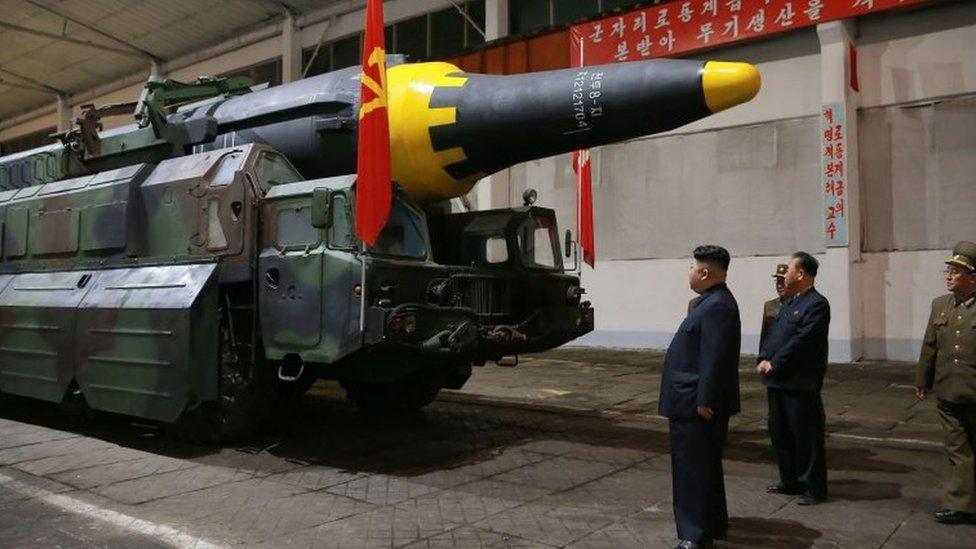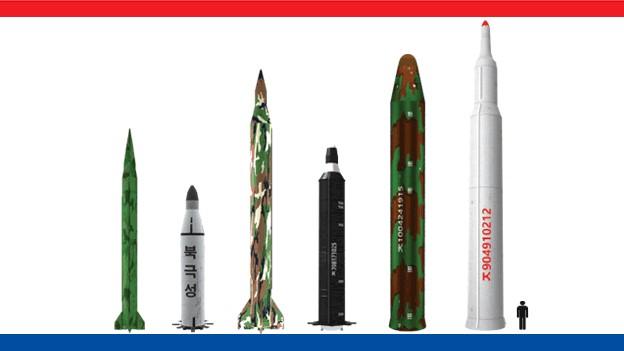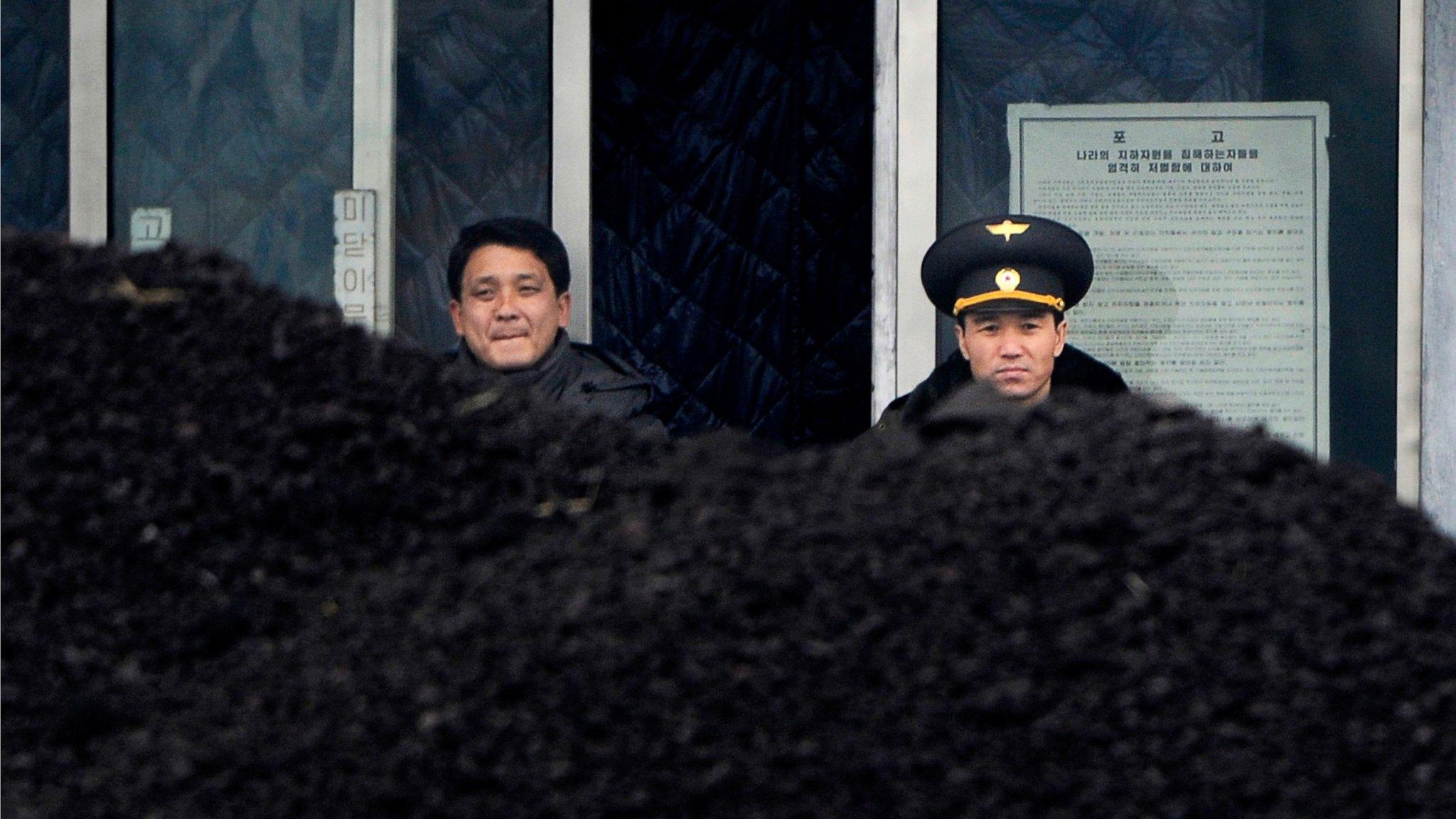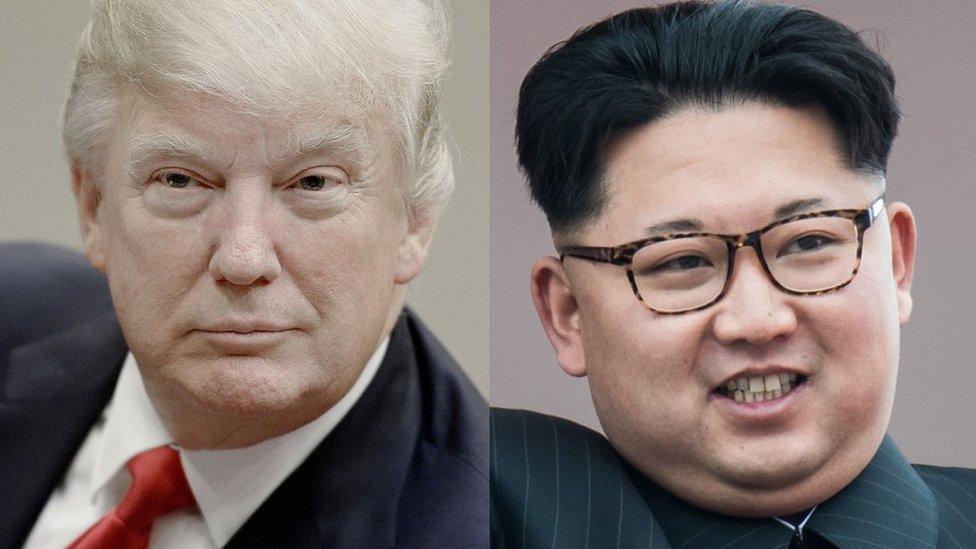UN Security Council condemns North Korea missile test
- Published
The rocket was tested at an undisclosed location
The UN Security Council has unanimously condemned North Korea's latest missile test and warned of new sanctions.
In a statement, the 15-member Council demanded that Pyongyang conduct no further such tests.
North Korea earlier said the missile it had tested on Sunday was a new type of rocket capable of carrying a large nuclear warhead.
The missile travelled some 700km (435 miles), reaching an altitude of 2,000km and landing in the sea west of Japan.
North Korea said it was a test of the abilities of a "newly developed ballistic rocket".

North Korea has released a photo showing the country's Supreme Leader, Kim Jong-un (left), inspecting a missile
South Korea's military said it could not yet verify the North's claims.
But it said Pyongyang's missiles did appear to be able to leave and re-enter the atmosphere, which is crucial to developing intercontinental ballistic missiles (ICBMs), South Korea's Yonhap news agency reports.
What do we know about North Korea's new missile?
In the statement on Monday, the UN Security Council stressed on the importance of North Korea "immediately showing sincere commitment to denuclearization through concrete action".
Pyongyang should "conduct no further nuclear and ballistic missile tests", it said.
The Council has imposed six sets of sanctions against the North since 2006.
Earlier on Monday, North Korea's KCNA state news agency said the test of a "newly developed mid/long-range strategic ballistic rocket, Hwasong-12" had gone to plan.
"The test-fire aimed at verifying the tactical and technological specifications of the newly developed ballistic rocket capable of carrying a large-size heavy nuclear warhead," it said.
North Korea is known to be developing both nuclear weapons - it has conducted five nuclear tests - and the missiles capable of delivering those weapons to their target. Both are in defiance of UN sanctions.
But it remains unclear whether it has the ability to make the weapons small enough to be mounted on a rocket, and it has never tested an ICBM which could reach, for example, the US.
ICBM's are considered to have a range of about 6,000km, but analysts believe the missile tested on Sunday would have travelled about 4,000km if it had been fired at a standard trajectory rather than upwards.
The KCNA report said that, as ever, the test had been overseen by the North's Supreme Leader, Kim Jong-un.
It said he had told the scientists and technicians involved "not to be complacent" but to build further "nuclear weapons and methods of delivery" until the US made "the right choice".
The White House has mooted talks with North Korea under the right conditions, which would include a halt to missile tests.
But in a statement on Sunday, it said Pyongyang had been "a flagrant menace for far too long" and that this "latest provocation" should "serve as a call for all nations to implement far stronger sanctions".
The US ambassador to the UN, Nikki Haley, said on Sunday that until Mr Kim met the US conditions, "we're not sitting down with him".
South Korea's newly elected President Moon Jae-in, who is seeking deeper engagement with the North, said it was a "reckless provocation" while China, North Korea's only real ally, is urging restraint.


- Published20 April 2017

- Published10 August 2017
- Published4 July 2017

- Published27 April 2017
